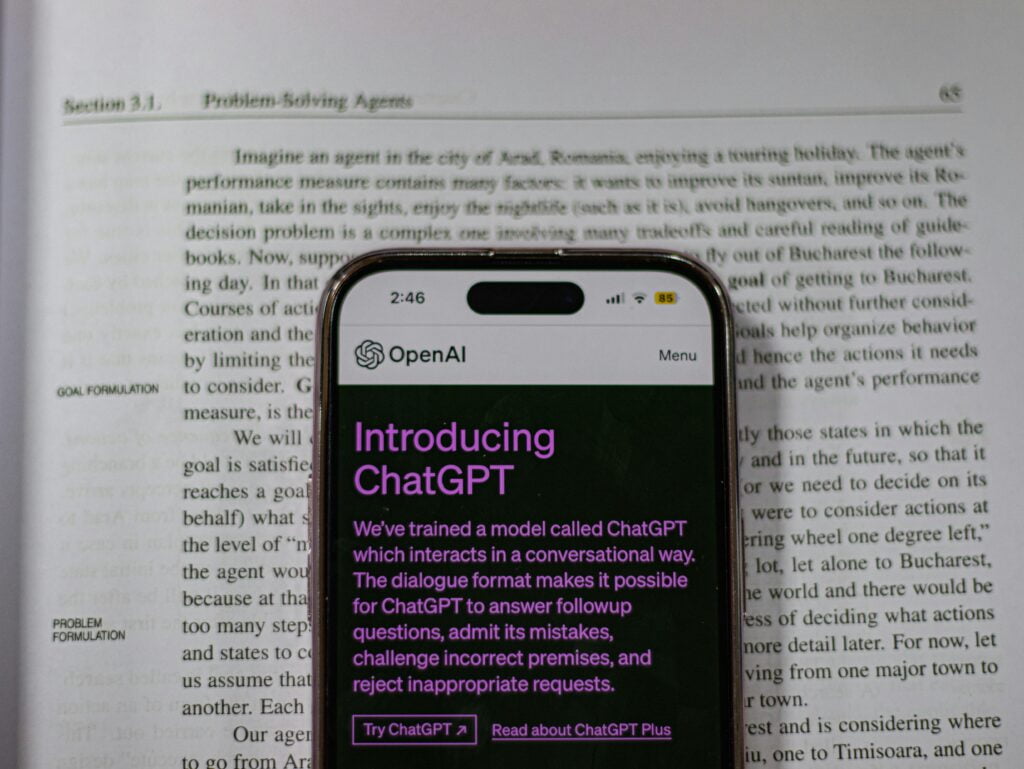According to a poll, very few people frequently use “much hyped” artificial intelligence (AI) applications like ChatGPT.

Only 2% of British respondents to a study of 12,000 people across six nations, including the UK, claimed to regularly use these kinds of products.
However, the Reuters Institute and Oxford University survey indicates that young people are defying the trend, with those between the ages of 18 and 24 being the most ready to accept technology.
The principal author of the paper, Dr. Richard Fletcher, told the BBC that there was a “mismatch” between the “public interest” in AI and the “hype” surrounding it.
The survey looked at opinions regarding generative AI tools, the new class of devices that can provide graphics, audio, and video in addition to human-sounding responses to basic text inquiries.
When ChatGPT was introduced in November 2022, generative AI quickly gained popularity.
Since then, internet companies have been investing billions of dollars to develop their own generative AI capabilities, a response to the attention that OpenAI’s chatbot received.
AI: What is it?
Nevertheless, despite all the funding and focus on generative AI, our research shows that it hasn’t yet crept into people’s daily internet usage.
“Large parts of the public are not particularly interested in generative AI, and 30% of people in the UK say they have not heard of any of the most prominent products, including ChatGPT,” said Professor Fletcher.
Hopes and fears
There is also a lot of public discussion surrounding the next generation of AI products and whether they will have a good or bad effect.
For the optimists, expected results have included everything from an acceleration of economic growth to the development of novel life-saving medications.
Conversely, the cynics have gone so far as to claim that technology poses a threat to humankind as a whole.
In an effort to determine public opinion, this study found:
Most believe that in the next five years, generative AI will significantly affect society, especially in the areas of news, media, and research.
The majority stated that they believe generative AI will improve their own life.
When asked if generative AI will improve or worsen society overall, most respondents were more negative.
According to Dr. Fletcher, “people’s hopes and fears for generative AI vary a lot depending on the sector,” the BBC said.
“People are generally optimistic and about the use of generative AI in science and healthcare, but more wary about it being used in news and journalism, and worried about the effect it might have on job security.”
He claimed the findings demonstrated how critical it was for all parties, including regulators and governments, to approach the AI discussion with nuance.
Based on responses to an online survey conducted in six nations—Argentina, Denmark, France, Japan, the United Kingdom, and the United States—the conclusions were drawn.







